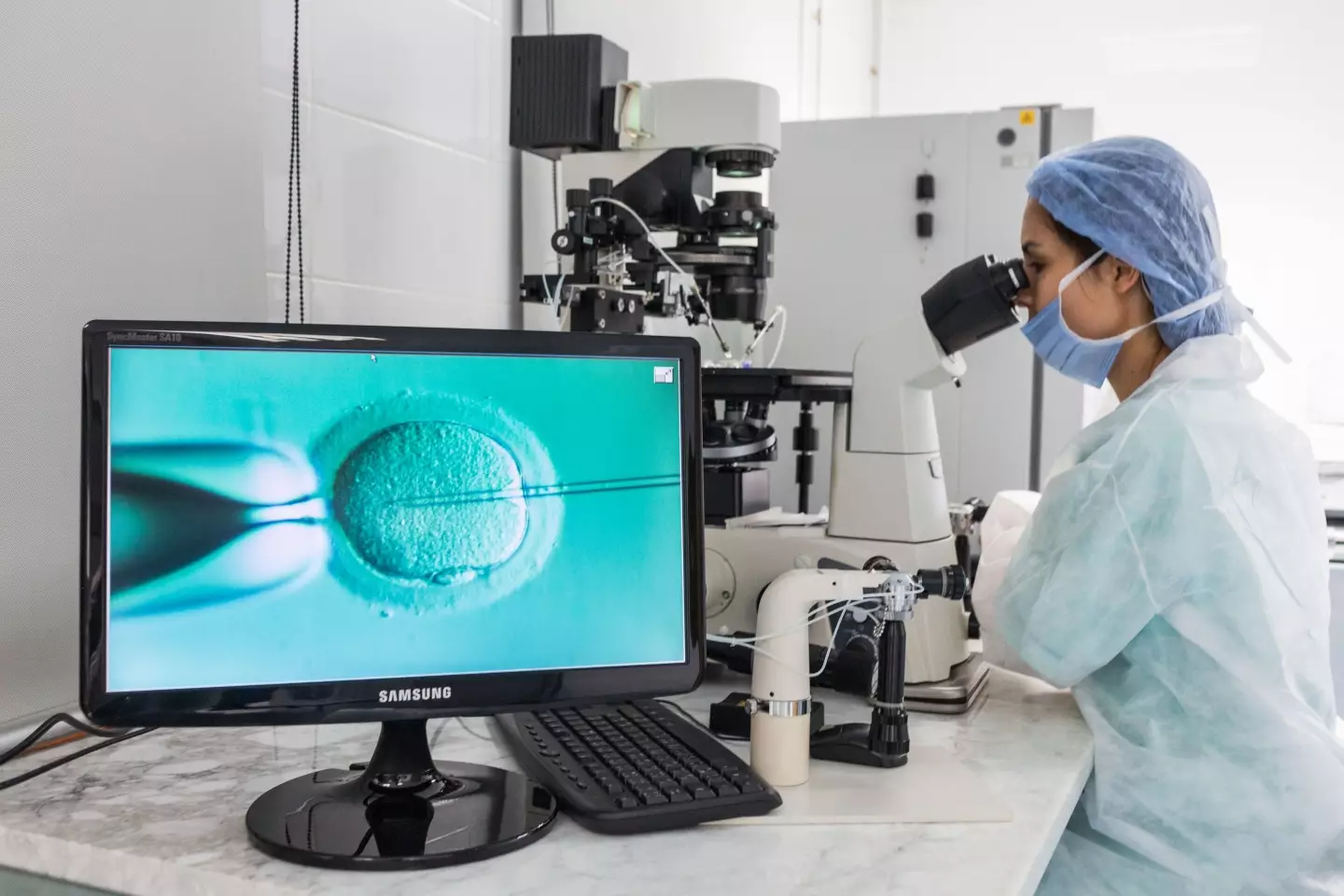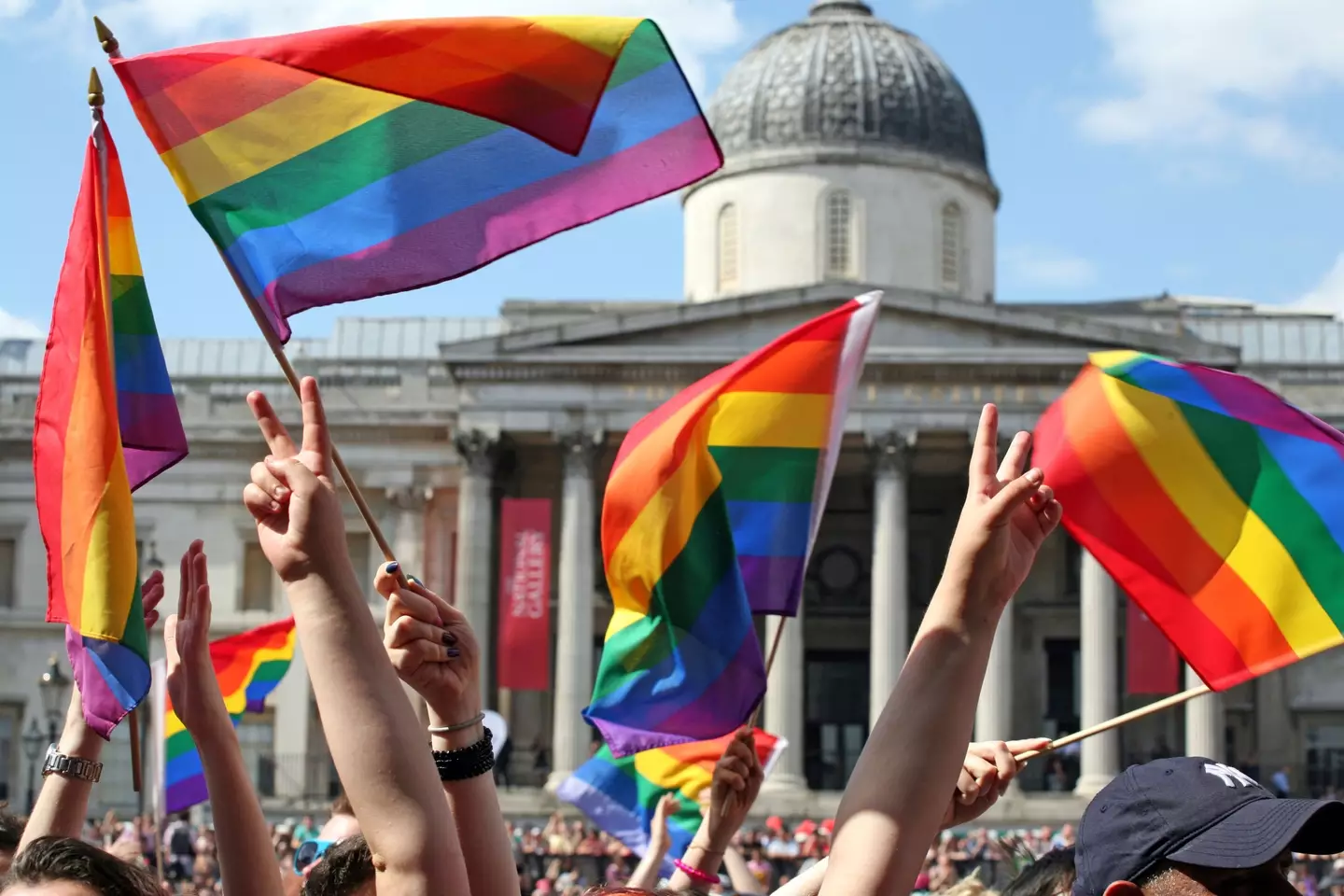.png)
The NHS has scrapped its discriminatory policy around IVF which forced queer couples into paying thousands for artificial insemination (IUI) to prove their fertility status.
The policy, which also affected single women, required anyone but cisgendered heterosexual couples to prove their infertility privately before they could receive IVF on the NHS. Kourtney Kardashian and new husband Travis are currently undergoing IVF:
Cisgendered heterosexual couples, meanwhile had to try to conceive for two years before being offered NHS-funded IVF.
Advert
The change was announced on Wednesday (July 20) as part of the government's Women's Health Strategy.
As reported by Pink News, those affected will now be given six rounds of NHS-funded IUI before they will become eligible for free IVF.
Kayleigh Hartigan of Fertility Mapper, who was an advisor for the Women's Health Strategy, told Tyla it has 'removed biggest barrier to accessing fertility treatment in the UK - cost.'
She explained: "A single round of intrauterine insemination (IUI) is between £800-£1000 and that's before you add in the cost of the initial investigations, monitoring and follow up consultations.
"Under previous rules female same-sex couples were unfairly expected to go though up to 12 rounds of IUI before being able to access IVF treatment.
"The cost of this is prohibitive to many couples driving them to take risks including using online sperm donor groups."

Hartigan explained that the policy change reflects the acknowledgement that families and when and how they are made are changing.
She explained that through Fertility Mapper, which offers support and reviews for those seeking fertility services, she has seen 'first hand just how many people, from all walks of life, needed policy change.'
"Improving access to female same-sex couples reminds us that assisted reproduction is not solely about treating infertility, it also gives us the opportunity to create families on our own terms," she explained.
The NHS's change has come about following years of campaigning from LGTB people to scrap the 'gay tax' on IVF.
In 2020, a petition was even created by same-sex couple Megan and Whitney Bacon-Evans calling for the equal access that's now been granted.

It was the sheer amount of people behind the cause which was a driving force behind the policy change.
Hartigan said: "Whilst typical calls to action similar to similar government strategies garner around 8,000 respondents, over 100,000 individuals responded to The Women's Healthcare Strategy which has pushed these new policies forward - a number the government just can't ignore."
Reacting to the news that the police had changed, Megan Macon-Evans told HuffPost UK: "No one should be forced to have to get into debt, or pay thousands of pounds that they might have spent on a house, or anything else that’s important to them, that no one else has to do.
"So yeah, for us, it's amazing, because we believe in equality."
Hartigan said that the change also reflects a shift from viewing fertility treatment through a medical lense to treat infertility to a more varied use.
"The perception of assisted reproduction has changed from 'treating' a problem to becoming a tool that can be used to help bring fertility needs into the present day - which includes creating diverse families," she explained.
Leah Caitlin Wynne-Sheil and Leah Joseph have recently gone viral by sharing their journey to becoming parents as a British queer couple.
Hartigan tells Tyla that this change is not only momentous for LGBTQ+ couples, but because it's created 'the opportunity for a new dialogue around fertility in the UK' which will benefit everyone.
She said the UK now uses this service to celebrate 'hope and diversity rather than sickness and failure.'
Topics: News,
